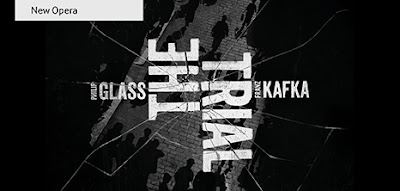Review - Greek by Mark-Anthony Turnage.
Scottish Opera and Opera Ventures at Edinburgh International Festival 2017
Hibernian vs Partick Thistle. Incest patricide and plague
Two years ago I combined an afternoon at a Partick Thistle away game in the capital, with an evening at the Edinburgh Festival. Unfortunately that day a 3-0 defeat by Hearts was what preceded an evening of Greek tragedy, with Juliette Binoche as Antigone. Much as the heroes of Greek plays often fail to learn the lessons of their ancestors, I optimistically tried to combine a trip to Easter Road to see Partick Thistle open their season with a match against Hibs, with another Greek tragedy in the evening. The day started much as it did two years ago, with a 3-1 Partick Thistle defeat setting a dark mood for the evening's entertainment.
 |
| Hibernian 3-1 Partick Thistle |
The Greek stories persist because they are good stories. They also give us a prism with which to examine our current world. This year at the Edinburgh Festival alongside Mark-Anthony Turnage's Opera, Zinnie Harris's re-telling of The Oresteia, which I saw (and loved) last year, in on show (Oresteia: This Restless House review).
In Greek mythology Antigone is the daughter of Oedipus, her tragic fate set in motion by the history of her father's actions. Tonight we were going to hear about the deeds of the father. Mark-Anthony Turnage's Greek is an opera of Steven Berkoff's play of that name, which re-staged the Oedipus myth in the east end of London in the 1980s.
Oedipus in Greek mythology, was left on a hillside to die by his father, King Laius, to prevent a prophecy that he would grow up to kill his father and marry his mother. Found and raised as their own by King Polybus and Queen Merope he hears the prophecy of what he is fated to do, from the Delphic oracle, and not knowing his real parentage flees Thebes to avoid his fate. In the classic example of the Scot's phrase "whit's fir ye'll no go by ye" he ends up unknowingly killing his father, marrying Queen Jocasta his mother, and bringing a plague upon the lands by his actions. Discovering the truth he rips out his eyes and lives on forever in the strange mind of Sigmund Freud who believed we all want to emulate Oedipus' complex family dynamics.
 |
| The cast of Greek |
Scottish Opera have recently become very competent at modern, smaller scale productions, such as their excellent The Devil Inside. Greek has a cast of four artists playing several roles and an orchestra of 18 or 19 musicians, yet it still packs a mighty punch. The co-production with Opera Ventures uses a bare, revolving stage set onto which imaginative projections give a stark, and when necessary, humourous atmosphere to the whole performance. The costumes, often requiring a quick turnover, also give it a distinctive, consistent and crisp feel. Taken from Berkoff's play, it is a story set not among Greek kings and queens, but working class families in Thatcher's dystopian Britain. Coming here straight from Easter Road, the opening scene greeted me with the rhythmic chanting onstage of Arsenal fans in an London pub. Alarmed by the racist chants of his father and his parents' belief in a fairground fortune-teller's alarming prophecy, shell-suited Eddy leaves home.
 |
| Alex Otterburn as Eddy |
The cast of Susan Bullock, Andrew Shore, Allison Cook and "Scottish Opera Emerging Artist" Alex Otterburn as Eddy were excellent throughout, both in singing and in the extravagant acting required of their parts. The words are sharp and witty throughout, with much dark humour at times. As London descends into riots and plague (the play was written whilst AIDS was running out of control) Eddy kills a cafe owner in a fight and marries his wife, before inevitably finding out at the end when his parents arrive years later that his true origins mean he has unknowingly fulfilled the prophecy. Oedipus pleaded to be excused his actions because he was unaware of what he was doing. Now Eddy knows what he has done, should the shame destroy everything he has?
The orchestra keep the story moving along, with brassy jazz sounds at times, and a cacophony of percussion, with truncheons and riot shields at other moments. The 1980s setting feels unfortunately contemporary in a Tory led Britain fermenting division along racist lines and between those that have and have not. Are people responsible for their actions when they know not what they are doing?
It was nice to see Steven Berkoff on stage at the end to take the plaudits from the audience, alongside Mark-Anthony Turnage and the cast and crew.
A thoroughly enjoyable night out, and I find it bizarre that the audience for this type of thing remains elusive. Opera has got to tear down its elitist image to make people aware of the imaginative and entertaining material it can provide. After a second night at the Edinburgh Festival, Greek will be coming to Glasgow in February 2018. I am planning to go see it again.
 |
| Edinburgh skyline as we head home to Glasgow |





















